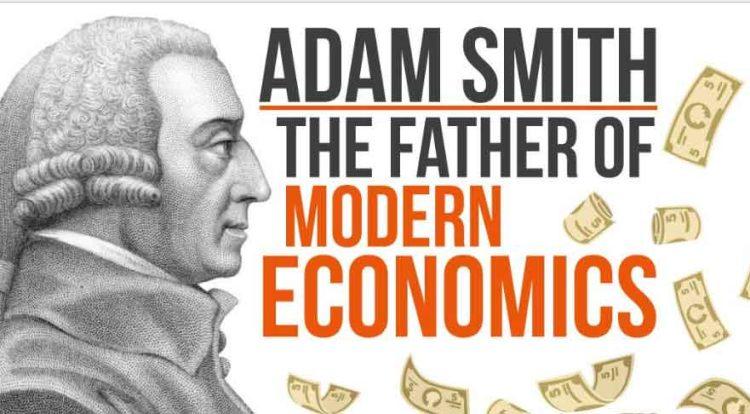Adam Smith is celebrated as the “Father of Economics” in the field of economics. His profound impact on contemporary economic thought is evident through his influential works like “An Inquiry into the Nature and Causes of the Wealth of Nations” and “The Theory of Moral Sentiments.” These writings established the fundamental principles that greatly advanced our comprehension of economic concepts. This article aims to delve into Adam Smith’s life, his ideas and the substantial contributions has made to the field of economics.
Early Life and Educational Life of Adam Smith
Adam Smith was born on 16th June 1723 in Kirkcaldy, Scotland. His intellectual journey began at an early age. After completing his education at Glasgow University and Balliol College in Oxford, he embarked on a path of academic exploration. His interactions with influential thinkers like Fracis Hutcheson and David Hume fueled his curiosity, leading to the development of his revolutionary economic theories.
“The Wealth of Nation” and its Impact
Adam Smith’s most significant and famous book, “An Inquiry into the Nature and Causes of the Wealth of Nation”, commonly known as “The Wealth of Nation” published in 1776. In this book, he explained his ideas in detail. This book closely analyzed the dynamics of economic systems, advocating for principles that would shape the foundation of modern capitalism.
Key Contribution and Theories of Adam Smith
Here are the theories given by Adam Smith, the father of Economics:
- Division of Labor: Smith’s concept of the division of labor highlighted the efficiency gained when individuals specialize in specific tasks. He used the example of a pin factory to illustrate how this principle could dramatically increase productivity.
- The Invisible Hand: One of Smith’s most enduring ideas, the “invisible hand,” suggests that individual pursuit of self-interest in a competitive market ultimately benefits society as a whole. The pursuit of profit, in turn, drives the efficient allocation of resources and the production goods and services that meet the needs of consumers.
- Free Market Philosophy: Smith’s advocacy for minimal government intervention in the economy emphasized his belief in the power of free markets. He argued that individual decisions, driven by self-interest, collectively guide the market to optimal equilibrium.
- Theory of Value: Smith’s theory of value was based on the concept of labor. He proposed that the value of a commodity is determined by the amount of labor required to produce it.
Legacy of Father of Economics: Adam Smith
Adam Smith’s ideas reshaped economic thinking and set the stage for modern economic theory. His work laid the foundation for capitalism, individual incentives and market dynamics. “The Wealth of Nation” inspired generations of economists, policymakers and thinkers who sought to understand and harness the forces that drive economic growth and prosperity.
Find More General Studies News Here



 Indian Olympic Medal Winners List Till N...
Indian Olympic Medal Winners List Till N...
 Who is the Inventor of the Gramophone?
Who is the Inventor of the Gramophone?
 HS Dhaliwal Appointed New DGP Of Andaman...
HS Dhaliwal Appointed New DGP Of Andaman...
